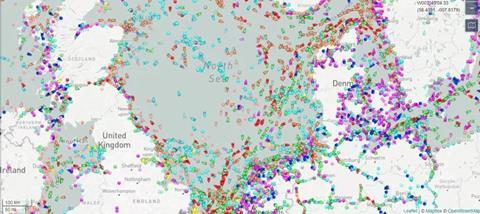Crew WIFI and Internet communications are essential for any modern maritime vessel, whether for cruise lines, transport vessels, yachts, etc.

The good news is that LTE/5G can offer much higher speeds at a significantly lower cost to satellite, enabling the next wave of maritime communications.
Vessels spend a significant amount of time nearshore or in harbors: waiting, off- or on-loading, or bunkering. This is also the time when the need for data communications is the highest (loading bills, clearance, shipping instructions, crew waiting time, etc.), hence an excellent opportunity to leverage LTE/5G as a more attractive alternative for reliable connectivity.

But still, as maritime businesses are only starting to understand the benefits of LTE, there is still some hesitance around its capabilities - is it a good fit? will it even make an impact on my communications? (short answer? yes, and also yes.)
But to expand on it and since our many conversations with maritime customers, we’ve gathered the top-5 questions we tend to get around the use of LTE/5G for maritime, hoping these can also solve some of your doubts when considering this new technology.
What’s my range when using 5G?
With the ongoing developments in LTE/5G networks, router equipment, and antennas, vessels can now comfortably connect 25 nautical miles from shore. And in countries where operators are using new LTE bands in the 600-800Mhz range, such as Australia or in the Netherlands and North Sea area, this can easily double (read: T-Mobile is the first Dutch provider to expand its 5G network in the North Sea). For more good news, network operators are building more coverage close to shore and even offshore, such as Tampnet, offering connectivity without any land in sight.
What speeds are possible?
This depends firstly on the quality of the networks. Being in Singapore or Australia nearshore, one can achieve 100Mbps download or more. In Indonesia or the Philippines, it would be more in the 5-10Mbps range. A second factor is the type of vessel, where higher and larger ships enable a higher and more stable placement of antennas and thus higher speeds. Of course, this assumes enterprise-grade routers and high-gain antenna equipment, like those offered by our partners Cradlepoint and Poynting.
What if vessels sail between countries?
Certainly, one can think about roaming SIMs and how the costs will vary as they cross borders overseas. Relying on partners with maritime expertise will offer better bundle solutions with multiple local- as well as roaming SIMs to have least-cost access in all key ports. Cradlepoint routers used for Maritime have the capacity for 4 SIMs (which can be doubled to 8) to create maximum SIM flexibility. This way vessels can benefit from the lowest cost and highest speed access no matter what the route.
What about my satellite connection?
Satellite connectivity won’t be disappearing soon due to its importance on open sea. However, more ship owners combine both options on board in such a way that the most economical connectivity option is used first. (We recently published a case study about this with customer RockTree).
Can I control data usage?
Using Cradlepoint routers means all management is cloud-based and there is no need for on-board IT managers or staff to operate the service. And with Cradlepoint NetCloud, all vessel connectivity including usage, performance, profiles, and web filtering is managed from the cloud. This gives vessel owners full control, whether it’s one vessel or hundreds.
Would you like to know more? Blue Wireless has been implementing LTE/5G-based solutions for over 5 years with hundreds of installations completed. Learn more by visiting our Maritime Solutions page or by reaching out to our team of global experts to help you in your journey.










